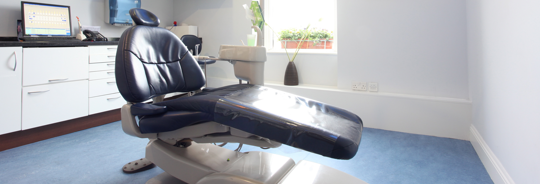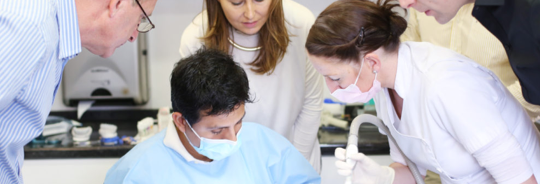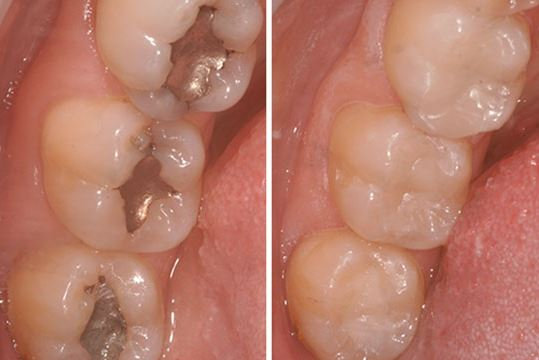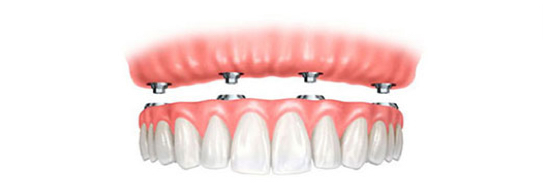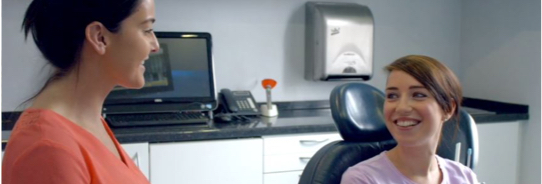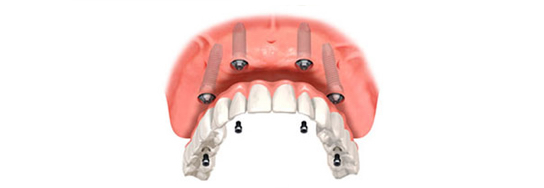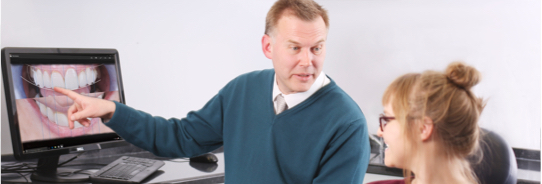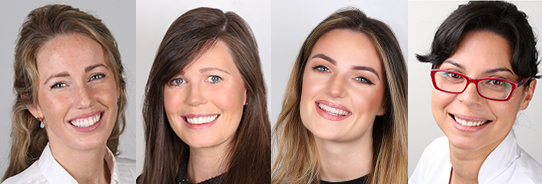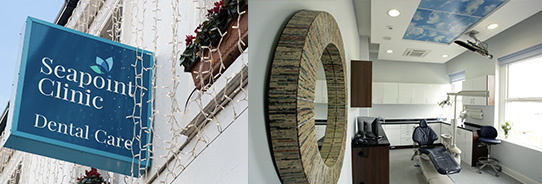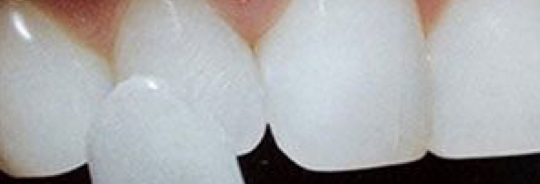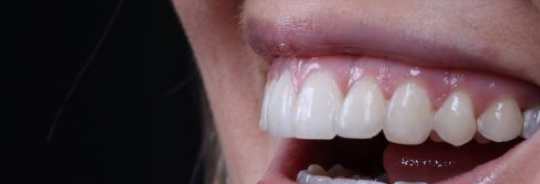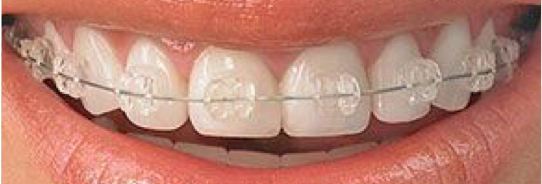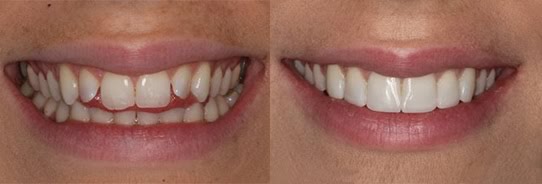

Blog
We post all the latest information here regularly so it's always up to date for you. If there is a topic you would like to have us cover please ask.
25 April 2017
Oral Care of Older People

A Trinity College study has revealed that over half of older people in Ireland have not visited the dentist in at least three years, despite the fact that good oral health is essential for overall well-being. This has lead to a growing concern among health professionals about the quality of oral health among older people. The study questioned 105 patients over the age of 65, with the average age of participants being 79, and discovered that 50% had not attended a dentist in at least three years. Almost two in three of those questioned felt they 'had no problem or need for treatment', with just over half feeling they had no need to attend because they had no teeth.
Previous research suggest that as many as 41% of older people have no teeth, while those with teeth had on average just eight. Researchers did note that while it is common to assume there is no need to visit a dentist if you have no teeth, regular dentist visits are essential for screening disease such as oral cancer, something which older people are far more prone to.
The study also revealed that older people are less likely to visit the dentist in the last three years if they have been diagnosed with a cognitive impairment, such as dementia. However, poor oral health can lead to far more specific issues among older people, such as difficulties chewing, meaning they are far more limited in their dietary choices which can impact overall nutrition and general health. This can be further aggravated by poorly fitted false teeth, a loss of self-confidence and a reduction in quality of life.
Researchers found that there are a growing number of obstacles facing older people when it comes to their dental health, such as the view that having no teeth means no need to maintain oral care. Other issues raised were a lack of awareness of entitlements to treatment, reduced mobility and concerns about physical access to dental surgeries. But just how can we change attitudes towards oral health and dental care;
"One way to achieve this may be to provide targeted education at geriatric out-patient clinics, both to patients and relatives/carers, which explains the importance of regular attendance, even in people with no teeth. In this setting, it would also be fruitful to inform patients about oral hygiene, as well as their entitlements to dental access/treatments," the researchers said. "In particular, dental services should move away from the ‘one size fits all' approach, and instead, be tailored to the individual needs of patients. Dentists would also benefit from additional training in the care of an older population," they added.
Trinity College Study
So what steps can you take to ensure you maintain a healthy mouth and what signs should you look out for?
Gum Disease
Gum disease can harm the gum and bone that hold teeth in place. When plaque stays on your teeth too long, it can form a hard, harmful covering, called tartar, which brushing can't clean. The longer the plaque and tartar remain on your teeth, the more damage it can cause. Your gums may become red, swollen and bleed easily. This is known as gingivitis.
If gingivitis goes untreated, it can overtime cause your gums to pull away from your teeth and form pockets that can get infected. This is known as periodontitis. If not treated, this infection can ruin bones, gums and tissue that support your teeth. In time, it can cause loose teeth which your dentist may have to remove.
By following these simple steps, you can help prevent gum disease:
- Brush your teeth twice a day using a high fluoride toothpaste to strengthen tooth enamel and prevent tooth decay
- Floss at least once daily
- Use mouthwash
- Eat a well-balanced diet
- Cutdown or quit smoking entirely
- Replace your toothbrush every two to four months. Your toothbrush is a sanctuary for bacteria due to the high amount of moisture and oral debris
- Eating a healthy diet can prevent gum disease
- Schedule regular check-ups with your dentist to identify progress and threats to your oral hygiene. Know how to brush correctly is paramount to maintaining good oral health. Simply gently brush your teeth on all sides with a soft-bristle brush and fluoride toothpaste, using small round motions and short back-and-forth strokes. Take your time when brushing and be sure to gently clean along the gum line. Along with brushing, carefully flossing will help remove plaque and leftover food that a toothbrush may not be able to reach. Be sure to rinse after you floss. If brushing or flossing causes your gums to bleed or hurt your mouth, be sure to book an appointment with your dentist.
Replace Your Old Dentures
Dentures can lead to a sense of reduced self-confidence. They can also cause your underlying bone structure to deteriorate over time, meaning dentures become loose and fall out, particularly while laughing, coughing or sneezing. To combat this, many people use denture glues and pastes but fail to realise that, again, this is only a short-term solution to a long-term issue. Dentures don't stop bone resorption and in fact cause it. This means the deterioration of facial bone structures can accelerate the visible signs of aging. With continuous wear and tear, dentures can become uncomfortable or even painful to wear.
However, these issues can be avoided by full mouth dental implant restorations, which look and function like normal teeth. Dental implants can also help protect against the deterioration of the jawbone. Fixed bridges provide functionality and natural looking teeth. This option gives you back fixed teeth with implants, which won't move whatsoever, meaning you can chew foods in comfort and don't need to take them out for cleaning. Because they are fixed in place, you can clean them just like your own natural teeth.
- Compared to dentures, full mouth implants avoid the many disadvantages above and offer additional benefits to you.
- Much better stability and comfort overdentures, as close to natural teeth as possible
- Restoration of natural bite, chewing power and ability
- Bone resorption of your jaw virtually stops, allowing regrowth to take place
- No denture covering your palate, allowing food and wine to taste better
- Improved appearance of smile and face
Oral cancer
Oral cancer most often occurs in people over the age of 40. It's important that signs of oral cancer are caught early, as treatment works best before the disease has spread. A dental checkup is an ideal time for your dentist to look for the early signs of oral cancer. Even if you have lost all your natural teeth, you should still schedule regular appointments with your dentist. Try to avoid smoking, drink alcohol only in moderation and use lip cream along with sunscreen.


